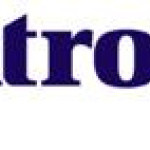- Industria:
- Number of terms: 20560
- Number of blossaries: 0
- Company Profile:
Tektronix provides test and measurement instruments, solutions and services for the computer, semiconductor, military/aerospace, consumer electronics and education industries worldwide.
A special pressure-sensitive, non-magnetic tape used for joining two lengths of magnetic tape.
Industry:Software
a) A change from one picture to another. Any mix, wipe, cut, non-additive mix, or introduction of a key. b) The moving of a fader arm or initiating an “auto transition” to accomplish any of the above effects.
Industry:Software
In a material composed of oriented particles, the orientation ratio is the ratio of the residual flux density in the orientation direction to the residual flux density perpendicular to the orientation direction.
The orientation ratio of conventional tapes is typically about 1.7.
Industry:Software
a) Information that keeps track of the different programs in an MPEG transport stream and in the elementary streams in each program. PSI includes: PAT, PMT, NIT, CAT, ECM, and EMM. b) Normative data necessary for the demultiplexing of TSs and the regeneration of programs.
Industry:Software
A high-speed data interface developed by IBM and used to connect numbers of storage devices (disks) with systems. Three technology generations are planned: 20 Mbps and 40 Mbps are now available, and 100 Mbps is expected to follow.
Industry:Software
The toolchest in the upper left-hand corner of the screen labeled System. You start system tools such as the Workspace and System Manager using its menu.
Industry:Software
a) A series of one or more pictures. b) In MPEG, the total, coded bit stream (the ES at system level). c) A video sequence is represented by a sequence header, one or more groups of pictures, and an end_of_sequence code in the data stream.
Industry:Software
a) Source, coded, or reconstructed image data. A source or reconstructed picture consists of three rectangular matrices of 8-bit numbers representing the luminance and two chrominance signals. For progressive video, a picture is identical to a frame, while for interlaced video, a picture can refer to a frame, the top field, or the bottom field of the frame depending on the context. b) In general, the term “picture” covers a coded entity. A picture can either be a frame or a field. It is possible to change dynamically between frame coding and field coding from frame to frame. Frame coding is preferred when a lot of details, but little motion is present, and field coding is best for fast movements. It is also important to realize that when the coded material originates from film, the two fields cover the exact same time, but when the source material comes from a video camera, the two fields relate to different moments.
Industry:Software
In tapes consisting of oriented, acicular particles, this ratio is an indication of the degree of particle orientation.
Theoretically, the ratio varies from 0.5 for randomly oriented particles to 1.0 for completely oriented particles. In practice, oriented tapes typically have ratios between 0.70 and 0.76.
Industry:Software
a) A type of mathematical model used to represent curves. They are usually displayed as polylines with a large number of very small sides.
The importance of splines is that they give very smooth curves for a relatively small number of points. b) In wooden ships, the curved skeleton of a hull is built by attaching bendable strips of wood to small, fixed, and angled blocks of wood. The strips are splines. In computer graphic splines, the blocks of wood are called control points. In computer graphics, curved lines are always visualized by drawing many short vectors. However, since each vector requires a fair amount of storage, curves are often stored in terms of their control points; whenever the curve is needed, the spline is recreated. Another advantage of storing splines as curves is the ease with which a spline curve is manipulated by moving its control points. Instead of moving the curve’s vectors one at a time, a large section of the curve is moved by dragging its control point. Splines convert discontinuity into smoothness. These properties make splines very useful in animation. When we create a keyframe for path animation, the object’s position becomes a control point for a spline that defines the entire path for all the in-between frames as well. This allows us to get smooth motion between all the keyframes, and avoid instantaneous (single frame) changes of direction.
Such changes would be highly unrealistic and could never yield satisfying animation. Another tremendous advantage of splines is that they are resolution independent. Magnifying and then redrawing a shape that is represented by a spline does not reveal the short vectors that represent the curve on the screen, because these vectors are recalculated to take into account the new magnification. Spline represented objects can also be easily rotated or skewed in 3D, again with no loss in clarity. So called “vector- based” systems make use of these features by representing fonts and shapes with splines, rather than the traditional bitmap. Bitmap systems, on the other hand, cannot represent or manipulate shapes nearly as handily.
Industry:Software
